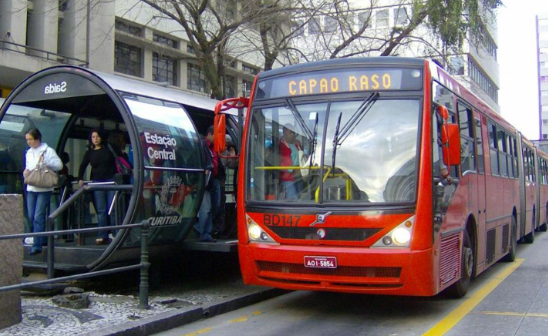The National Bank for Economic and Social Development (BNDES) signed a contract with the mixed economy company “Urbanização de Curitiba” (URBS), to support the structuring of the concession project for public transportation services in Curitiba (capital city of the state of Paraná, Brazil), within the framework of Curitiba’s Sustainable Mobility Plan.
BNDES will be responsible for monitoring all stages of the bidding process for the new concession, including hiring consultants to conduct studies, interacting with bidders and interested parties, conducting public consultations, and supporting the bidding process.
According to Green Finance for Latin America, the project aims to redesign the bus lines, increase the system’s energy efficiency, and implement a gradual solution to decarbonize the fleet’s vehicles.
The goal will be to reach 33% electric buses by 2030 and 100% of the fleet electrified by 2050, reducing CO2 emissions to zero.

Action Lines
Aligned with Curitiba’s Sustainable Mobility Plan, the premises of the project are the redesign of the bus lines, the increase of the system’s energy efficiency and the implementation of a gradual solution to decarbonize the fleet’s vehicles.
For the BNDES Project Planning and Structuring Director, Nelson Barbosa, the project is aligned with the Bank’s strategy of supporting initiatives and solutions that promote climate transition.
In this sense, he points out that it is essential to accelerate the development of sustainable mobility in the country.
For her part, Superintendent Luciene Machado also considers the initiative “emblematic and transformative for the growing movement of fleet migration towards zero-emission technologies that is taking place in Brazil”.
Another objective of the new concession is to increase the number of public transport passengers, reducing the use of individual motorized transport. According to data from Curitiba’s Urban Planning and Research Institute (IPPUC), public transport currently accounts for about 25% of the city’s transport.
With the restructuring, it is expected that, by 2050, public transport trips and active mobility (cycling or walking) in the municipality will reach 85%.




